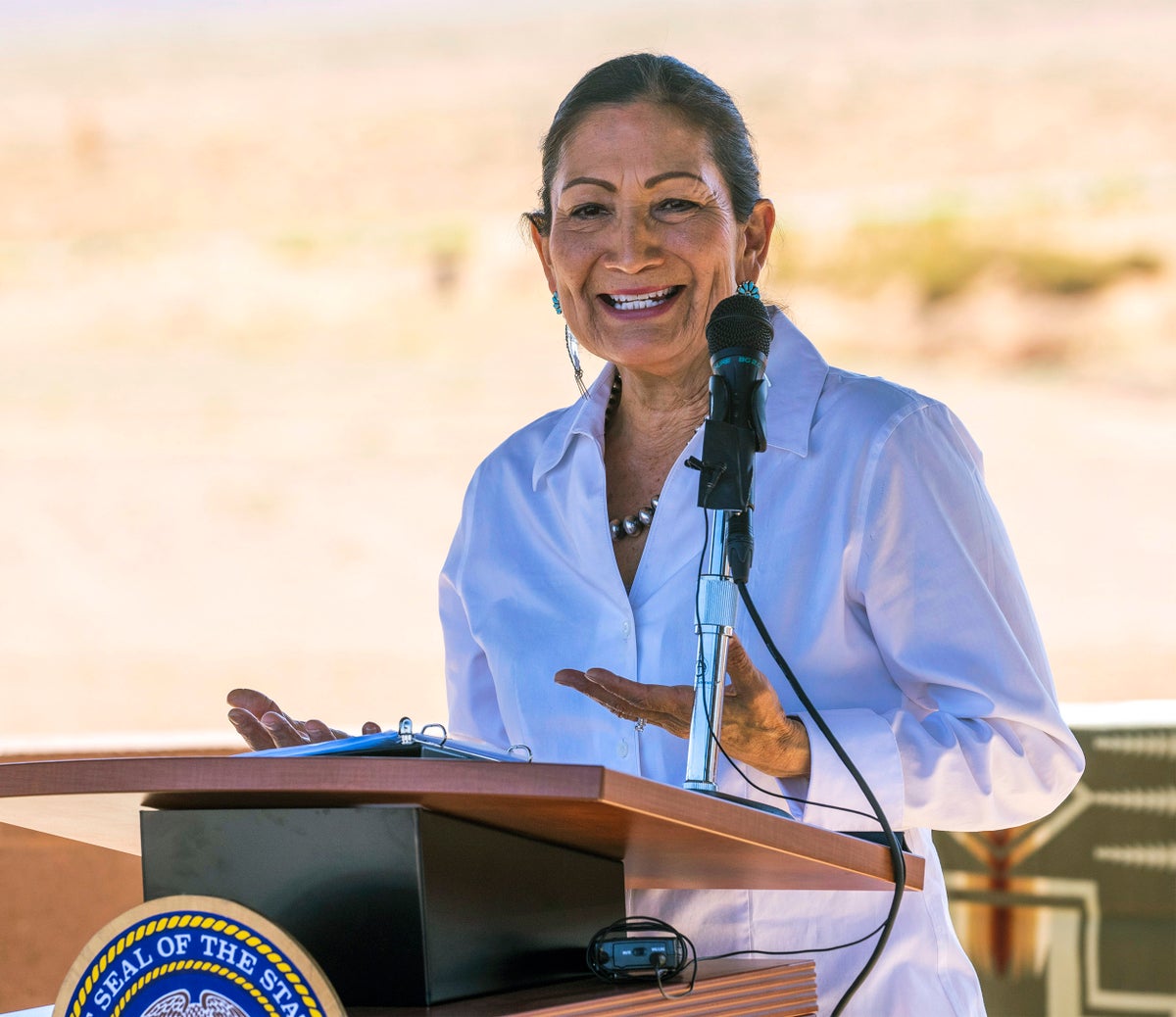
U.S. Secretary of the Interior Deb Haaland will visit Oklahoma on Saturday for the first stop on a yearlong nationwide tour to hear about the painful experiences of Native Americans who were sent to government-backed boarding schools designed to strip them of their cultural identities.
Haaland, of Laguna Pueblo in New Mexico, is the first Native American Cabinet secretary in U.S. history, and the agency she oversees recently released a report that identified more than 400 of the schools, which sought to assimilate Native children into white society during a period that stretched from the late 18th century until the late 1960s.
Although most closed their doors long ago and none still exist to strip students of their identities, some still function as schools, albeit with drastically different missions that celebrate the cultural backgrounds of their Native students. Among them is the Riverside Indian School in Anadarko, about 80 miles (129 kilometers) southwest of Oklahoma City, which is one of the oldest and is where Haaland will meet with former students and their descendants Saturday.
Riverside, which opened in 1871, serves students from grades four through 12 these days, offering them specialized academic programs as well as courses on cultural topics such as bead-working, shawl-making and an introduction to tribal art, foods and games. Currently operated by the Bureau of Indian Education, it has nearly 800 students from more than 75 tribes across the country, and the school's administration, staff and faculty are mostly Native American.
It is one of 183 elementary and secondary schools across the country funded by the Bureau of Indian Education that seek to provide education aligned with a tribe's needs for cultural and economic well-being, according to the bureau's website.
Until recently, the federal government hadn’t been open to examining its role in the troubled history of Native American boarding schools, where children were taken from their families, prohibited from speaking their languages and often abused. That has changed because people who know about the trauma that was inflicted hold prominent positions in government.
At least 500 children died at such schools, but that number is expected to reach into the thousands or tens of thousands as more research is done.
The Interior Department's report includes a list of the boarding schools in what were states or territories that operated between 1819 and 1969 that had a housing component and received support from the federal government.
Oklahoma had the most, 76, followed by Arizona, which had 47, and New Mexico, which had 43. All three states still have significant Native American populations.
Former students might be hesitant to recount the painful past and trust a government whose policies were to eradicate tribes and, later, assimilate them under the veil of education. But some welcome the opportunity to share their stories for the first time.
Lahoma Schultz, a citizen of the Muscogee Nation who lives in Bixby, Oklahoma, said she uncovered records that show her grandfather was forced to wear military clothing, learn English and perform unpaid labor while attending boarding schools in Oklahoma and the Carlisle Indian Industrial School in Pennsylvania.
Schultz said she got angry as she pieced together how such schools affected generations of her family. Her mother, Mollie Hicks, attended boarding school for a semester in 1938 and was punished for speaking the Creek language.
“She said if she ever got married and had children, she would not teach them the language,” Schultz said. “Here I am in my 70s trying to learn my language, and it’s really disheartening.”
Her mother’s experience led Schultz to research boarding schools and her family history in the early 2000s after getting a doctorate in psychology. She has learned the names of relatives she never knew and better understands why her parents were adamant that their children not attend boarding schools.
“That’s been healing, even for me, because I’m putting together more information on my own family,” she said.







